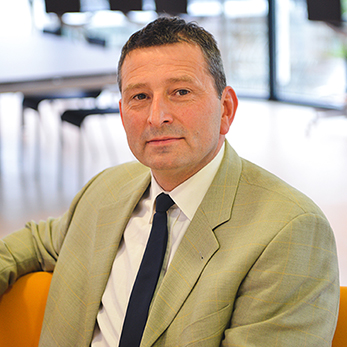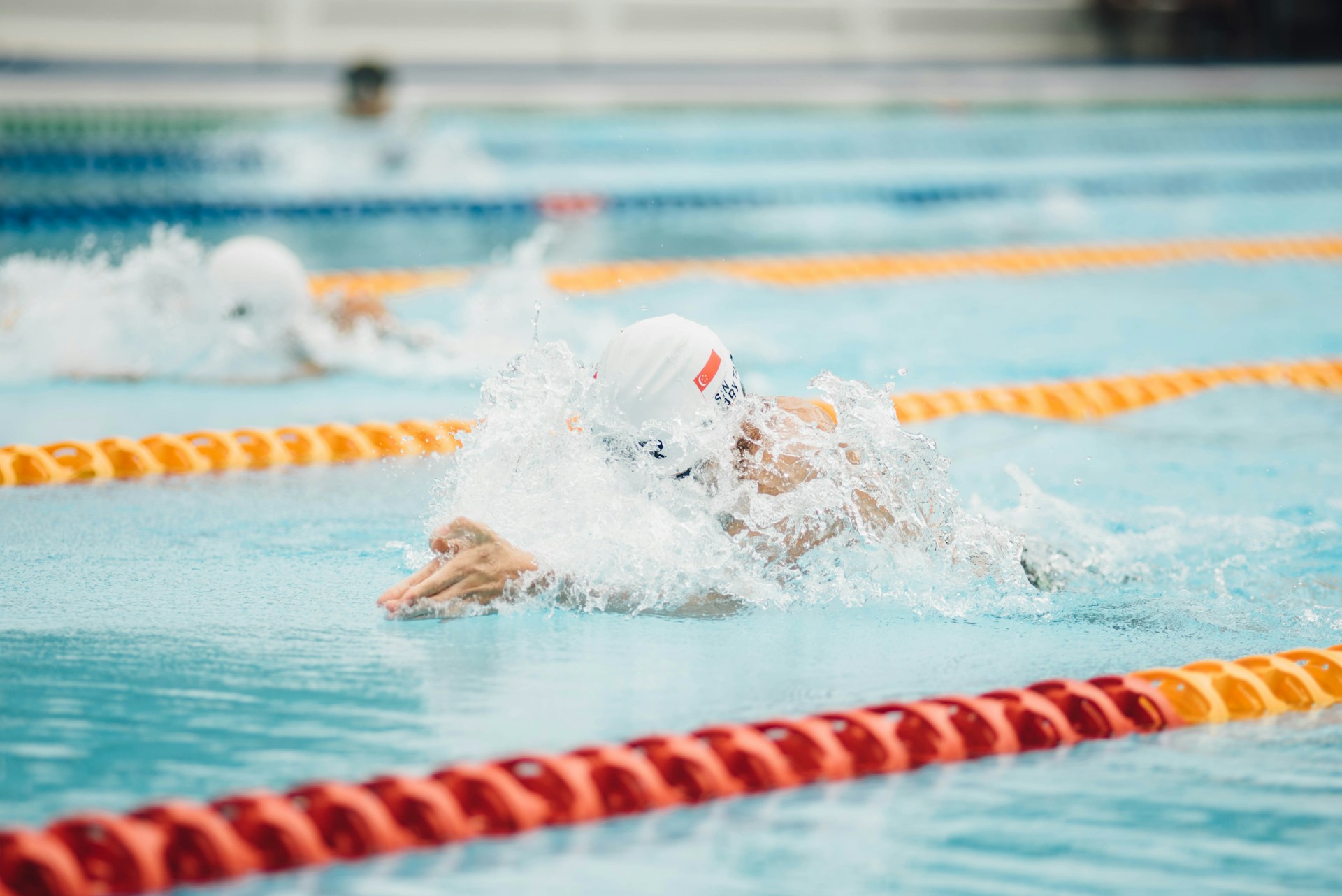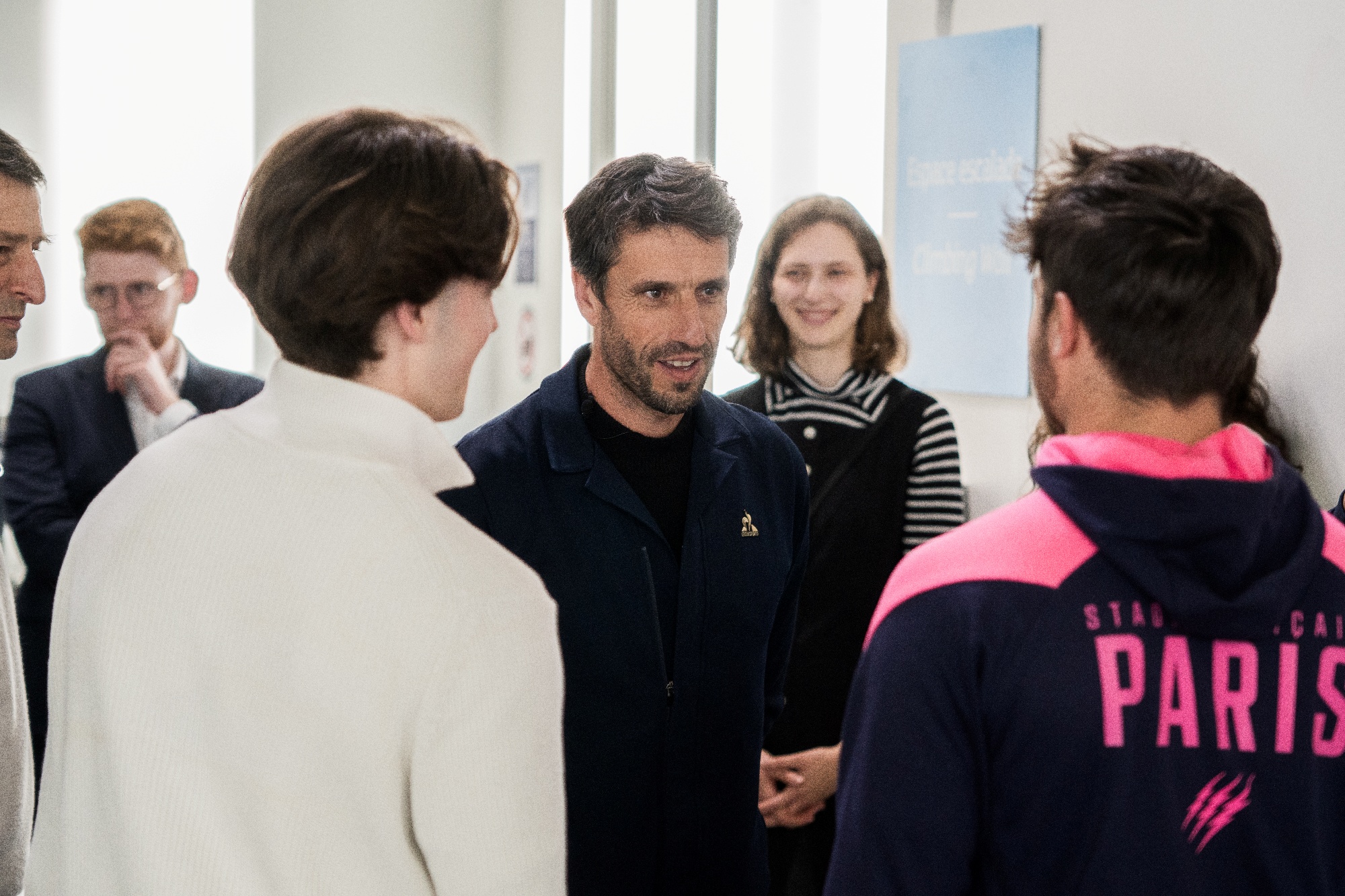Could you share the origins of the multidisciplinary HEPTA Bachelor’s degree? How did the concept develop, and what are its primary goals?
The HEPTA Bachelor’s degree was designed with the ambition of creating a French equivalent of Stanford at INSEP, enabling top-level athletes to combine their studies with elite sports practice in the same location. The idea emerged in response to the growing demand from athletes for flexible higher education while pursuing their sporting careers. In the USA, everything is managed by a single entity on the same site. In France, however, sport and higher education are separate worlds that don’t collaborate. We quickly realized that creating a ‘Stanford à la française’ at INSEP was not feasible due to the small number of students spread across various specializations and academic tracks.
We decided to create a unique multidisciplinary program that combines Applied Sciences, Humanities and Social Sciences, and Management. This program is divided between face-to-face and distance learning to accommodate the needs of top-level athletes. The athletes’ demand was clear: they wanted the flexibility of online courses along with the experience of campus life. This seemingly contradictory need led to the establishment of a hybrid program: up to 80% online and 20% face-to-face, spread across the seven Sciences Po campuses in France, with an entrepreneurship module at ESSEC Rabat. Another innovative aspect of this program is our comprehensive four-level support system.

What were the main challenges in designing and implementing this multidisciplinary program, and how were they addressed?
The main challenge was to factor in the complexity of both a multidisciplinary program and a customized approach that could be completed in two years. This required building laying the foundations for close cooperation among Sciences Po, CentraleSupélec, INSEP, ESSEC, and the Ministry of Sports and the Olympic and Paralympic Games. We also had to draw up agreements between the four institutions, design the curriculum, obtain accreditation from the Ministry of Higher Education, secure grants for athletes, create teaching video capsules, recruit teachers and students, and implement the necessary pedagogical engineering. It has been a real sprint, but through tight collaboration, strong shared motivation, and the skills of everyone involved, we have overcome these obstacles. The first classes are set to begin on September 10, 2024 at the INSEP ‘Campus d’Excellence.’

What are the main objectives of the HEPTA Bachelor’s degree?
The primary goal of the HEPTA Bachelor’s program is to provide top-tier multidisciplinary academic training while enabling young top athletes to achieve their dreams on international podiums. This hybrid program offers maximum flexibility without compromising exceptional academic quality. The HEPTA Bachelor’s degree presents a unique opportunity for athletes to balance their passion for sport with their studies. Our aim is to prepare students to excel both on the field and in their future careers, ultimately allowing athletes to pursue a Master’s degree (bac +5) after completing the HEPTA Bachelor’s degree. We firmly believe that the diverse backgrounds and rich life experiences of our students enrich our academic community and contribute to developing well-rounded, resilient leaders.
A significant challenge for HEPTA is to accommodate top-level Paralympic athletes. Currently, we have 370 students with disabilities, and our goal is to attract and welcome even more elite Paralympic athletes to our program.
Could you tell us more about the pedagogical support offered to students?
Pedagogical support is a cornerstone of the HEPTA program, structured around a four-tiered system.
Firstly, each teacher conducts webinars complementing the video capsules that form their courses. These sessions enable students to deepen their comprehension of the material, while providing teachers with opportunities to revisit key concepts covered in asynchronous sessions.
In addition, two educational coaches offer ongoing support through online platforms, ensuring continuous assistance with homework, assignments, and exam preparation.
Moreover, we provide 1,000 hours of personalized tutoring during the first two years, catering to those who require individualized reinforcement.
Furthermore, the program manager will play a vital role in facilitating community engagement. They will monitor students’ advancement, ensure that all participants complete key milestones, identify any early signs of potential dropout, and promptly address any decline in commitment.
This tailored and continuous support ensures that each student-athlete receives the attention and assistance they need to excel both in their athletic pursuits and academically.
How does the HEPTA Bachelor’s program tailor career paths for athletes? What forms of flexibility are provided to balance their sporting and academic commitments?
Customization lies at the core of the HEPTA Bachelor’s program. Each academic year is structured into two segments, providing flexibility in time management. Exams are scheduled on two separate dates, spaced three weeks apart, to align with students’ athletic commitments. Additionally, online courses enable students to follow the program at their preferred pace, complemented by face-to-face sessions fostering engagement in campus life and meaningful interaction with peers and instructors.

How does the partnership with institutions like Prépa Diagonale and CY Cergy Paris Université strengthen the educational opportunities for elite athletes, and what impact do you anticipate on their professional futures?
Our partnership with Prépa Diagonale and CY Cergy Paris Université further strengthens our educational offering. The HEPTA program is ideal for Baccalauréaet holders (i.e. recent high school graduates), providing them with the flexibility to pursue their studies regardless of their evolving sporting career, such as relocating to an international club or training center. Diagonale and CY combine their curricula to offer an L3 degree (third-year undergraduate degree), while ESSEC provides a specialized pathway into the Master in Management program. Students interested in a classe préparatoire, a rigorous two-year preparatory program in France designed to prepare students for entrance exams to elite higher education institutions, can benefit from the CY Diagonale ESSEC agreement, facilitating their application for direct admission based on qualifications (Admission Sur Titre, AST).
For executive education, we provide programs that can be accessed online up to 100%, depending on athletes’ needs. In addition, our General Management program caters to sports professionals with managerial experience, fostering collaboration with peers. Regardless of age or level of experience, our diverse training offerings are tailored to meet their unique academic and professional aspirations.
A final word?
For over two decades, we’ve had the privilege of supporting top athletes on their academic and professional journeys. Our programs have proven instrumental in nurturing these extraordinary graduates, whose achievements stand as testament to their dedication and talent.
Among them, one notable example is Tony Estanguet, President of the Paris 2024 Olympic and Paralympic Games Organizing Committee. He embodies the values of ESSEC. His leadership and stewardship of the Games, alongside numerous other ESSEC alumni, exemplify our status as world school with French roots. We take pride in witnessing our alumni excel on the world stage, making substantial contributions to prestigious international events.






